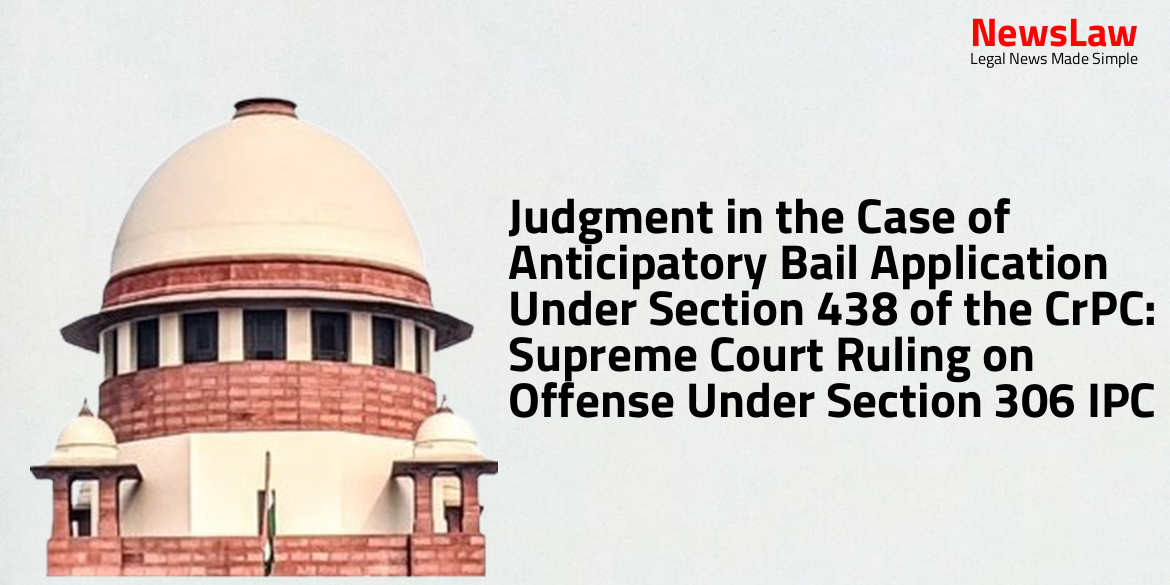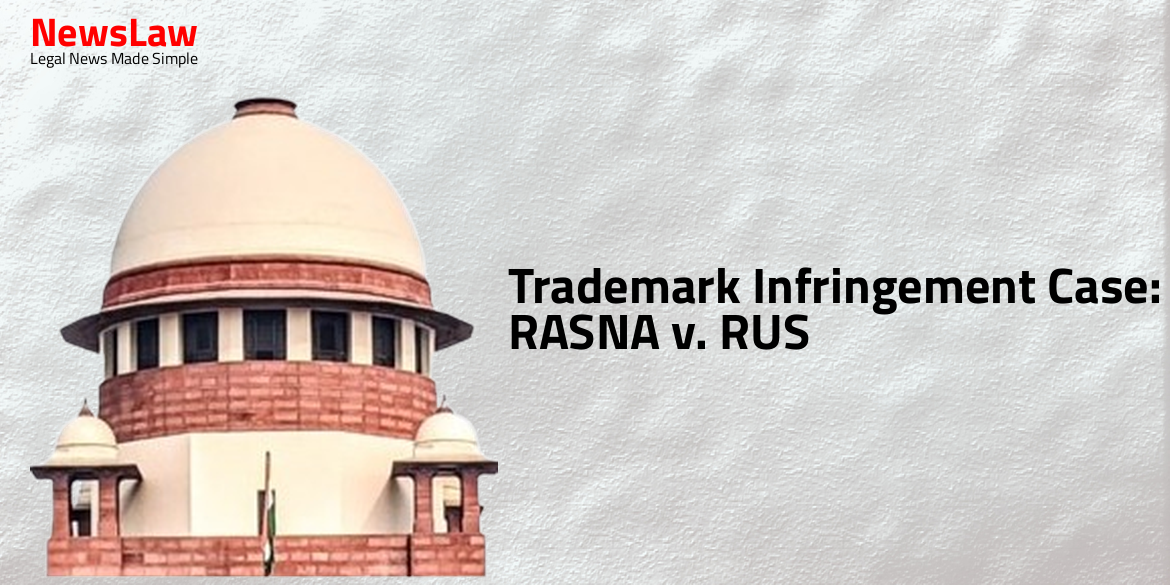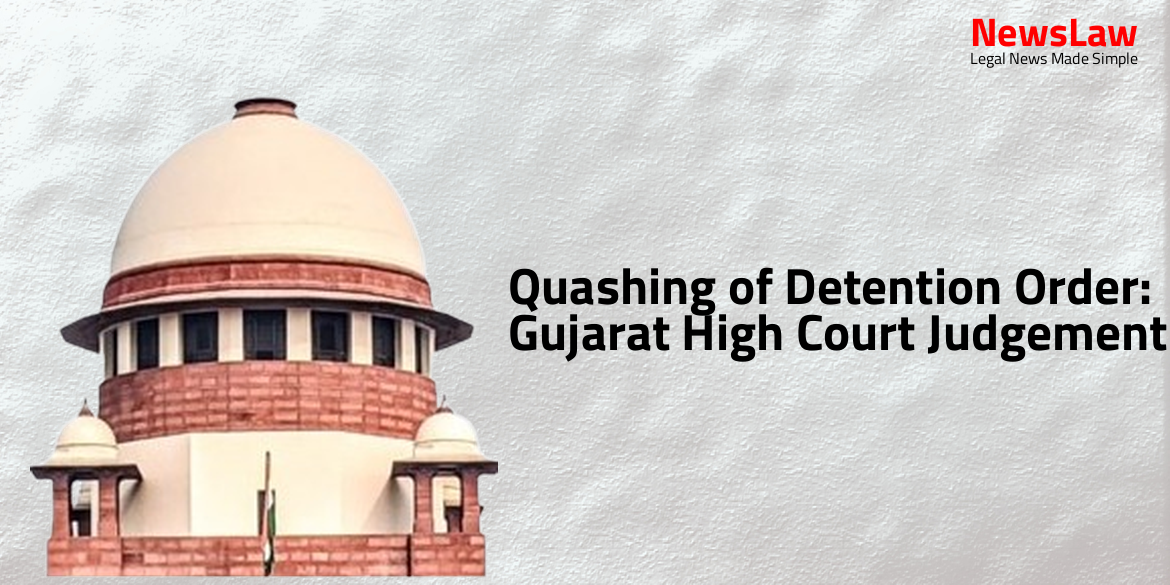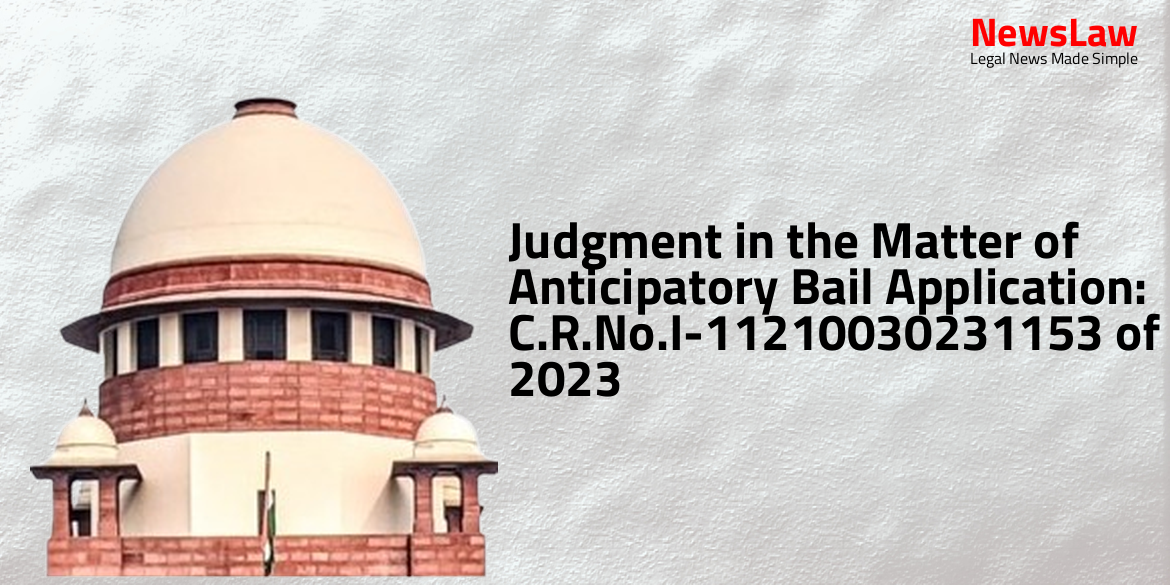Exploring the Supreme Court’s decisive judgment on an anticipatory bail application under Section 438 of the CrPC and the interpretation of the offense under Section 306 IPC. The Court’s ruling sets a significant precedent for future cases, shedding light on important legal principles without mentioning specific parties involved in the case.
Facts
- The petitioner has filed for anticipatory bail under Section 438 of the Code of Criminal Procedure, 1973.
- The case involves the FIR registered as I-C.R.No.11821030240366 of 2024 at Jhalod Police Station, Dahod.
- The petitioner is seeking relief to prevent his arrest in connection with the said FIR.
Arguments
- Learned Additional Public Prosecutor opposed grant of anticipatory bail
- Opposition based on nature and gravity of the offence
- Court heard arguments from both sides
- Considering facts, allegations, and role of the accused, court inclined to exercise discretion in favor of the petitioner
- The petitioner is ready and willing to abide by any conditions imposed by the Court.
- To convict a person under Section 306 IPC, clear mens rea to commit the offense is required.
Analysis
- The prosecution failed to establish beyond reasonable doubt that the deceased committed suicide and the appellant abetted the act.
- Absence of a suicide note or dying declaration in the case.
- Court emphasized the need to examine facts and circumstances to determine if the victim had no alternative but to end their life due to cruelty or harassment.
- No proof of direct or indirect incitement to suicide by the appellant.
- Lack of ingredients of Section 107 of IPC to constitute an offense under Section 306 of IPC.
- Section 306 IPC requires an active or direct act that leads the deceased to commit suicide.
- Mere allegation of harassment without any positive action from the accused near the time of occurrence is not enough for conviction.
- The act must reflect the intention of the accused to push the deceased to a point where they see suicide as the only option.
- Exercise discretion in favor of the petitioner based on Supreme Court rulings in Siddharam Satlingappa Mhetre vs. State of Maharashtra and Ors. (2011) 1 SCC 694 and Shri Gurubaksh Singh Sibbia & Ors. Vs. State of Punjab (1980) 2 SCC 665, NCT of Delhi (2020) 5 SCC 1
- Discretion must be judicious, cautious, and in line with basic principles from numerous Supreme Court decisions
- Consider factors such as the prima facie belief in the accused’s guilt, nature and severity of the accusation, punishment severity, risk of absconding, accused’s character and behavior, likelihood of reoffending, influence on witnesses, and potential obstruction of justice if bail is granted
- Avoid detailed examination of evidence and reasons that could prejudice the accused at the bail stage
Decision
- The present petition is allowed, directing that the petitioner will be released on bail upon arrest.
- Bail amount set at Rs. 10,000 with one surety of the same amount.
- Conditions for bail include cooperating with the investigation, being available for interrogation, and attending the Police Station on specified dates.
- Petitioner must not influence witnesses, obstruct the investigation, or change residence without informing the court.
- Permission required to leave India, and passport, if any, to be deposited with the court.
- Trial court instructed not to be influenced by observations made by the High Court during bail granting.
- Breach of conditions can result in appropriate action by the court.
- Trial court has the authority to modify or relax the bail conditions as per legal provisions.
Case Title: BABUBHAI SAKALABHAI DAMOR Vs. STATE OF GUJARAT
Case Number: R/CR.MA/7496/2024



